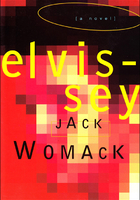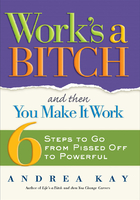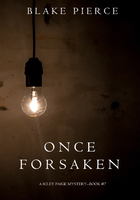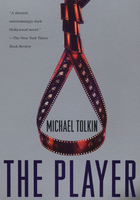MATTHEW WEINER MAD MEN CREATOR
I remember studying Samuel Taylor Coleridge's poem "Kubla Khan" in high school. According to Coleridge, upon waking from a deep, opium-induced reverie, he recalled a vision and immediately wrote the fifty-four famous lines. But when we started doing the poetic analysis, it became clear that there was no way this poem came out all at once. It has this amazing structure. We learned from letters and notes that had been discovered that it was likely Coleridge had not only worked on "Kubla Khan" for several months but that he also sent it to friends for feedback.
Artists frequently hide the steps that lead to their masterpieces. They want their work and their career to be shrouded in the mystery that it all came out at once. It's called hiding the brushstrokes, and those who do it are doing a disservice to people who admire their work and seek to emulate them. If you don't get to see the notes, the rewrites, and the steps, it's easy to look at a finished product and be under the illusion that it just came pouring out of someone's head like that. People who are young, or still struggling, can get easily discouraged because they can't do it like they thought it was done. An artwork is a finished product, and it should be, but I always swore to myself that I would not hide my brushstrokes.
Writers were revered in my home and I wanted to be one since I was a kid, but when I went to college, I could not get into a writing class. I went to Wesleyan, a very small liberal arts school. The classes had only twelve to fifteen people, and you had to submit writing samples to get in. Mine, apparently, were just not good enough. I was rejected from every writing class. I ended up convincing an English teacher to do a one-on-one independent poetry study with me. When I finished my thesis, I was extremely proud and wanted others to see it. I gave it to a humanities professor and he invited me to his house to read the work out loud. After the first poem, he told me to get out a pen and take notes. He began, "The infantile use of … The puerile … The childish use of … The cliché awkwardness … " It was one humiliating cruelty after the next. And I had to write these insults down myself. I literally went through hours of this, poem after poem. He finally leaned over to me and said, "I think you know that you are not a poet." I said, "I was not aware of that."
While being battered always hurts, an important survival mechanism I've acquired over the years is to both thrive on rejection and hold on to compliments. Rejection enrages me, but that "I'll show you!" feeling is an extremely powerful motivator. I'm at a point now where I'm afraid that if I lose it I'll stop working. On the flip side, there's nothing like a meaningful compliment from someone you respect. In my youth I was a miserable student and rarely did my homework. My fourth grade teacher once pulled me aside and let me have it. She said, "Talking to you is like talking down the drain; you don't hear anything. You think you are going to make it through the rest of your life because you are charming. You think you don't have to do all the work—but you do." I remember looking up at her after this tirade and saying, "You think I'm charming?"
After college, I attended film school at the University of Southern California, where I finally started doing some narrative writing. There were contests for the films that the school would actually make, and my material was never selected. I finally said, "I am going to make a documentary," and made one about the paparazzi. It stood out and I became known for my editing skills and sense of humor. Upon graduation, I set up meetings everywhere in the hopes of getting a job. In three months I got nothing. I couldn't even get a meeting with an agent.
So for the next three years I stayed home and wrote spec scripts. My friends had day jobs, but I didn't. My wife, Linda, worked hard as an architect and supported us. I attempted to shop my material around, but nothing sold. I got very bitter, seeing people I didn't think deserved it succeed. It was a dark time. Show business looked so impenetrable that I eventually stopped writing. I began watching TV all day and lying about it. My mother would call me to drive my brother-in-law to the airport. That's the kind of crap I was doing instead of being a writer. I felt like the most useless, worthless person in the world.
Then one day I saw the low-budget movie Clerks. It inspired me to get off my ass and make my own independent film: a small, quirky comedy where I played myself—a failing screenwriter. I used my wife, my apartment, my car—basically everything I could to finish the film. Making that movie was a transformational experience. It had trouble getting into festivals and never sold, but I had set out to do something and had gotten it done.
A friend of mine from college had a pilot in the works that needed punch-up. Punch-up is a bunch of comedy writers sitting around the room making a script funnier. I didn't even know there was such a job, but I got to drive onto the Warner Bros. lot and sit in this room with all these professional writers. It turned out that I was pretty good at it. Everything I said was included in the script, and that felt great. The showrunner came up to me afterward and offered me $600 if I could stay through the end of the pilot. I was like, "Oh, my God. Yes. I'll be here." I would've done it for free just to be able to drive onto the lot again. That show quickly went off the air but word had gotten out that I was funny. Another showrunner took me to lunch and hired me for his show. One job leads to another, but you have to start somewhere. It was my first paying job in show business and I was thirty.
Comedy hours are long—literally fourteen-hour days, sometimes seven days a week. But I always wanted to create my own show, so I started researching my "advertising project" (Mad Men) in my spare time. It was like having a mistress. I worked on it at night or during my off-hours when I was not with my family. I paid people to do research, inundated myself with material, and even hired a writer's assistant to dictate to because I was too tired to type (it also freed my imagination). When I finished the script, I felt like it was something special.
I sent it off to my agent and pitched it to everyone I could. I literally carried it in my bag wherever I went in case I ran into someone who might be useful. I wasn't able to get meetings at the big networks, but I pitched it to small production companies. From them, I heard things like "You don't know what you're doing." "Are you aware of how uncommercial this is?" "Are you pulling our leg?" But, honestly, the most stinging responses I heard were along the lines of "This is one of the most beautiful, well-executed, exciting things I've ever read, but I'm afraid that we just don't do this kind of show." Those comments made me feel as if I were alone in the universe.
One person my agent sent Mad Men to was David Chase, the creator of The Sopranos. All I wanted was for him to read it and maybe godfather it into HBO, but he liked it so much he decided to hire me. He said, "Even if I fire you, I'm going to help you make this." And he actually gave it to HBO, but they passed because they didn't want to do a period piece.
Obviously, I continued to pitch Mad Men everywhere. Showtime, Lionsgate, Sony, FX—all of them passed. Mad Men had been bouncing around town for about four years and nobody wants something that has been rejected by everybody.
But then along came AMC. They were trying to make a splash and wanted to do something new. They were also interested in making a show they wanted to watch, which is really the secret of success in everything artistic. They basically said, "We love this thing and want to do it." I was so excited—but at that time no one thought AMC was, in show biz terms, a "somebody." Everybody felt sorry for me. I can't even tell you the pity I got. It was as if I were taking my project and screening it in someone's basement. No one even knew that channel. But AMC gave me complete creative control and all I remember thinking was I'm going to live my dream.
It took seven years from the time I wrote Mad Men until it finally got on the screen. I lived every day with that script as if it were going to happen tomorrow. That's the faith you have to have.
Hollywood is tough, but I do believe that if you are truly talented, get your material out there, can put up with the rejection, and don't set a time limit for yourself, someone will notice you.
The most defeatist thing I hear is "I'm going to give it a couple of years." You can't set a clock for yourself. If you do, you are not a writer. You should want it so badly that you don't have a choice. You have to commit for the long haul. There's no shame in being a starving artist. Get a day job, but don't get too good at it. It will take you away from your writing.
The greatest regret I have is that, early in my career, I showed myself such cruelty for not having accomplished anything significant. I spent so much time trying to write, but was paralyzed by how behind I felt. Many years later I realized that if I had written only a couple of pages a day I would've written five hundred pages at the end of a year (and that's not even working weekends). Any contribution you make on a daily basis is fantastic. I still happen to write almost everything at once, but I now cut myself slack on all of the thinking and procrastination time I use. I know that it's all part of my creative process.
MATTHEW'S PEARLS
When you have a meeting with somebody, look that person up and know everything you can about him or her. It's pretty effortless and can pay dividends. This might seem basic, but for some reason it took me forever to get it.
Remember people's names and don't be insulted if they don't return the favor. If you know someone's name, you can own them. I read that Napoleon used this trick. He spent huge amounts of time committing his soldiers' names to memory—and they would die for him.
When you are starting out, you have to enter contests and send your material to people cold. Send it to people who are in the business of looking at new ideas. You must also be in the industry's city to network and schmooze. You have to make connections to people, and no matter how early they are in their career, treat them as if they were important. They might be one day.
When someone rejects your work, register the fact that they don't like it, but don't listen to the reason why. People feel that they have to say something, and they often give a capricious justification to keep from hurting your feelings. For example, someone might say, "I don't like your movie because it's in black-and-white." You think, Damn it. If I had made it in color, I could've sold it. That's probably not true. Now, if William Goldman or Mike Nichols reads your work and suggests you do X to it, you might want to listen, but if you alter your work for every rejection, you'll end up running in all different directions trying to please an imaginary audience. It can be damaging and destructive.
A great idea is worthless; execution is everything. It does not matter if you invented Star Wars before Star Wars existed. You might get some money from selling your idea, but it will never amount to much. Actually write the script. There's no arguing with an existing piece of material, and you don't have to rely on anyone else's imagination.















